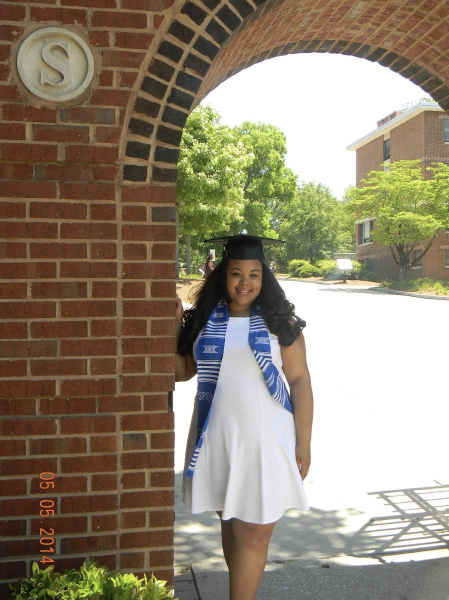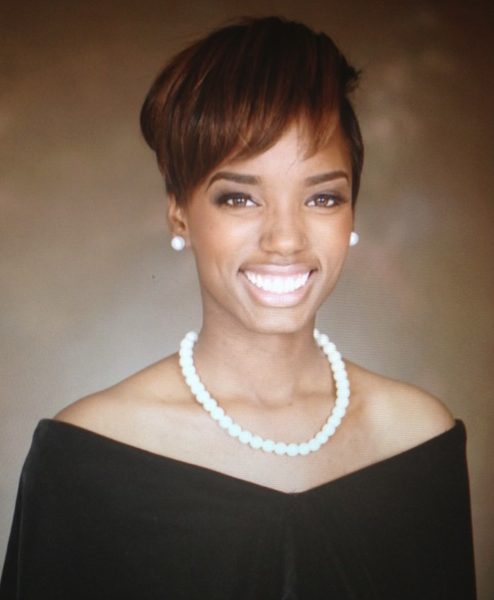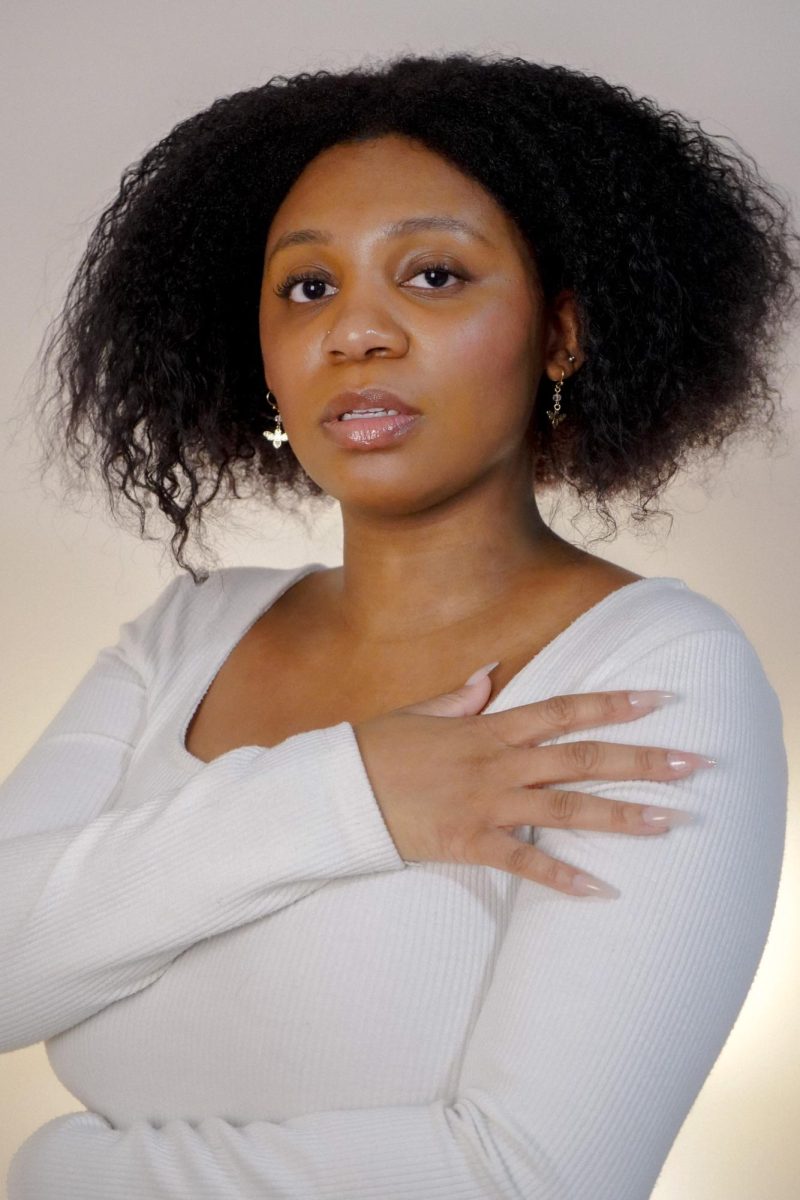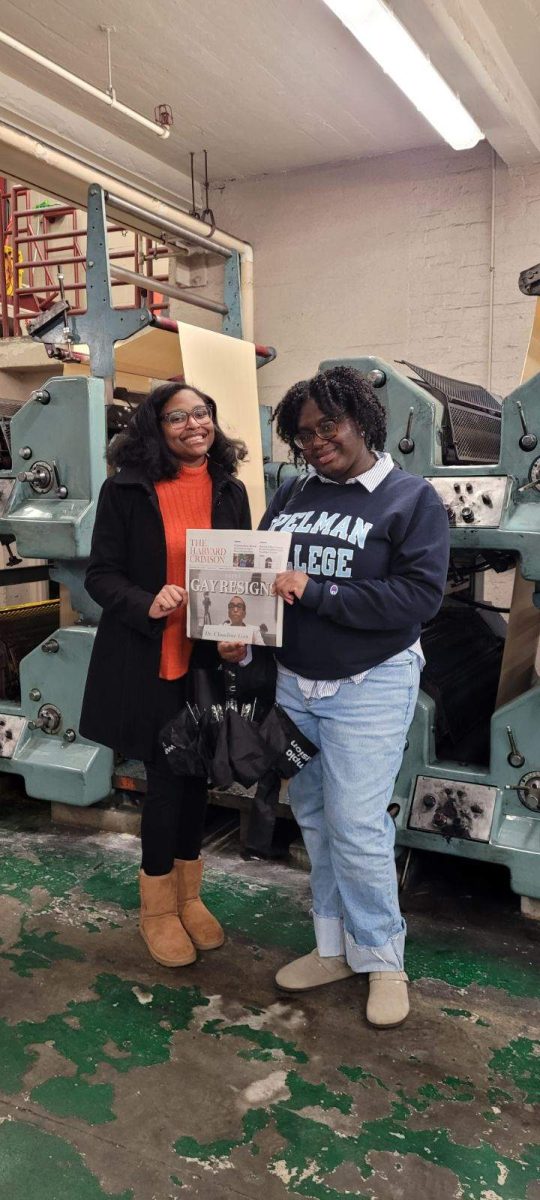As current sophomores, if someone asked us to briefly describe our first homecoming experience, what would spill out of our mouths would be: DRAKE DRAKE DRAKE! Celebrities aside, homecoming is a time when we get to bond with friends, create unforgettable memories, and embrace school pride, ALL while dressing up and looking amazing (ladies, send the link to your Shein carts)!
For alumni, though, homecoming works a bit differently. This time allows them to reconnect to the roots they left behind the day they crossed the graduation stage. A chance to connect with the younger generation and reflect on what new roots have grown in their absence.
The Class of 2014 is swiftly approaching their ten-year reunion. For their class, the year 2014 can be remembered as bittersweet as they prepared to leave the life they built for four years behind for a life of new adventure. A lot has changed within this past decade, and for many Spelman women, these past ten years have led to significant growth.
Join us as we embark on an interview with three accomplished Spelman alumnae, where we get an in-depth understanding of their personal journeys through Spelman and the impact it has had on their lives beyond the gates.
Meet Tyler Clark from Chicago, Illinois. Owner of Inspire by Tyler, Clark studied Mathematics and Mechanical Engineering at both Spelman College and Georgia Tech as a dual degree student. Despite her academic accolades, Clark found the balance between her passion for creating and learning.

Tell me about what you do! Do you think your work is profoundly impacting your community, and if so, how?
Clark is currently a senior analyst for pricing and revenue management with United Airlines, but she also uses her passion for art and creation in her business, Inspire by Tyler, where she produces 3D hair art. Clark talked about the first time she went viral for her creative work:
“So it went viral on my page, I was on a flight coming back to Atlanta getting notifications… I hit the max, which was like 99 notifications at a time. So, I’m like, is my phone broken? Like, what is happening? Then I realized it was true, and that I was going viral.”
From there, it seemed like opportunities were flying her way. From being featured in Tina Knowles’s Wearable Art Gala to working on art pieces for Quavo, Tyler found ways to express herself through these moments in her career.
Interestingly enough, it wasn’t just these explosive moments in her career that fueled her passion for her work. It was inspiring others to show up as their most authentic selves and remembering you don’t have to be limited to just one career or one hobby.
I think that’s something that I want more people to embody, like, you don’t have to be pigeonholed. Like, nobody can really tell you what your limitations are; it’s really up to you to break those expectations, break the barriers, and be who you want to be. And I think that there’s room for all of us because what happens is, like, we’ll neglect a very central part of ourselves because we don’t feel like there’s room for that. But I find if you could bring your full authentic self into different spaces, there’s a lot of opportunity and success there.”
What do you miss most about Spelman?
Clark spoke about the shock of transitioning out of Spelman, not just losing the warmth and safety of the school community, but also the support system and guidance it provided: “[Professors] really cared. It wasn’t easy, but I had the support to succeed. I even think about it from things like the career fairs and just all the opportunities that we had there. Like I do miss the structure around having those spaces that I could go to elevate my life, to elevate in the career space or whatever I was interested in,” she said.
Clark expanded on being an adult in the professional world and navigating all sorts of highs and lows on your own. “You do your best before you graduate to get a job secured. And then once you’re in your career, it’s like, “Okay, well, where do I go if I want to pivot… Do you go back to get an MBA or something? Do you go back to school and get back into that academic space to where you can now be more visible to other companies? … Spelman is very different from the world outside of Spelman, and I think it’s easy to not remember that while you’re in it.”
Many students attending HBCUs experience these same feelings of shock and confusion as they leave behind the culture and comfort of their institution, and confront a world where things simply aren’t the same.. Luckily for us, Spelman instills values that allow us to continue to thrive beyond the gates despite the barriers in our ways.
Clark describes this idea perfectly: “Sometimes life can have some hits that will tap away at that and being out of that safety net, you feel it. But I think Spelman gives you the power to truly persevere through it. Whereas someone who doesn’t have a similar experience, the way that they handle the situation might be different than you because you have this opportunity to understand your value as a black woman, and to be poured into, and to be empowered.”
Since this article is being published during Homecoming week, we wanted to know what these graduates’ favorite homecoming memories are!
“Oh, man, tailgate every time…Abso-freaking-lutely. Now, it’s been packed, but I feel like it was a very different experience back when I was in college versus when I come back as an alumna. But absolutely, I loved tailgate, it’s so fun.” Despite the jam-packed action of it all and the interesting characters you encounter (because you will wonder how some people got past security), Clark says that tailgate always remains a favorite. She also spoke happily about watching R&B artist Miguel’s performance and being lucky enough to meet him that day.
Do you have any advice for the graduating class?
Stay true to you. “I would just say, for those that’s graduating. I think it’s kind of just what I was saying about just really taking the skills that you learn at Spelman, taking the empowerment that you get from Spelman, and applying it forward in spaces where it may not even be welcomed, and to really show up as your authentic self in the real world.”
Meet Janiene Ming Thiong from Los Angeles, California, by way of Teaneck, New Jersey. Thiong majored in Comparative Women’s Studies and minored in Third World Politics. She currently runs a grant funding program for the University of California Office of the President called Advancing Faculty Diversity. As their senior policy analyst, she works to ensure that faculty of color are not only hired but are well supported at the UCs.

In what ways did Spelman contribute to your growth as an individual?
Thiong credits Spelman with teaching her the importance of advocacy, not just for herself, but also for others. Spelman also taught her a lot about the value of mentorship. She spoke about her family background, growing up with a stepfather who is an African-American Studies professor, and learning African proverbs and cultural values as a child. Sankofa is a value she’s always held closely to her heart, and she saw a commitment to giving back and uplifting others modeled beautifully at Spelman with the frequent presence of alumnae on campus.
“They were just so glad to be back on campus, whether it was to be a faculty member, or whether it was to be a staff member, or just to come back for homecoming,” she said. “There was a drawback to center that I so badly wanted to participate in afterward.”
Thiong spoke about sisterhood and the valuable relationships she gained at Spelman, but also generally about the value of showing up for those you love and care for. She talked not only about her fellow students but also about professors who were willing to pull students aside and check in when they were absent from class or didn’t seem like their usual selves.
“I think that Spelman taught me that it’s great to have accomplishments, and it’s great to say that your CV and your resume look like x, y, and z. But Spelman was the first place where I felt like people actually cared about who I was outside of what major did I have, right? And where did I come from? And whether or not I was valedictorian at my last school, or what was my GPA? Like, I was a whole person. And that’s important.”
How can Spelman change for the better?
Thiong spoke about schools that have a lax structure for first-year students, taking various steps to make them feel comfortable exploring their interests instead of zeroing in on a major, and, most importantly, prioritizing getting students settled in a completely new environment. One strategy some institutions adopt is not giving first-year students numerical Grades/a GPA.
Thiong believes the Spelman community could benefit from a similar academic structure for first-years, which she believes would ease the transition into college tremendously: “I think Spelman should adopt that practice, because Black women are not coming from the same playing field; I think that’s a way of looking at equity and your demographic in a really great way to say, ‘Look, we get it. I don’t know what kind of traumas you’re coming from or holding on to, or things that you don’t even know you’ve got going on yet. So like… let’s get you here. Let’s get you settled,” she said. “And they do that in other ways, but I think the pressures of performance are a big thing because you want to be the best and you’re amongst the best.”
What was happening in Georgia, the US, and/or the world while you were at Spelman? Any interesting historical events? How did the Spelman community choose to respond to them, if at all?
Thiong recalled the 2014 Georgia gubernatorial race between Democrat Jason Carter and Republican Nathan Deal, and the campaign season in which the Spelman community participated. “There was legwork that the Democrats of Georgia were doing, but this was like, in my opinion, the beginning of the tide changing in Georgia. And it really shifting to what blue was going to look like and what democracy was gonna look like in Georgia…” she said.
Relevant, pressing political issues at the time included abortion rights, as well as general healthcare access for Georgia residents, as several hospitals across the state struggled with funding and shut down. Residents in rural areas often had to travel far, over 50 miles, to see a doctor. Thiong spoke about one of her first exposures to Georgia politics, which was attending a committee held at the Capitol to discuss drug testing recipients of the HOPE Scholarship, a form of government assistance for college students.
“These meetings are open meetings. So folks can come up, give their testimonies, sway folks in the voting process… explain their story and how they will be affected by this. And I remember leaving… I don’t think they made a decision, but I’m looking around the room, and no one of color was sitting in that room, right? Nobody that was going to be affected by this was there,” she recounted.
She remembered feeling enraged at the potential impact this policy would have in policing and limiting opportunities for students of color and of lower income. “I think that that’s what created the push for the policymakers to say, oh, no, this needs to be reflective of how Georgia, or Atlanta, really is a progressive space.”
Since this article is being published during Homecoming week, we wanted to know what these graduates’ favorite homecoming memories are!
Like Clark, Thiong reminisced about enjoying the energy of the tailgate and getting to see her older Spelhouse mentors having fun. While tailgate was her absolute favorite part of homecoming, she also talked about loving Miguel and rap artist Waka Flocka Flame’s performances.
Do you have any advice for the graduating class?
Surrender to the process. “Part of surrendering to the process, especially in today’s world, is that it doesn’t have to look cookie cutter. And you can be doing seven different things, or eight different things, or none of the things, right, and your life can just be fulfilled in ways that you couldn’t even imagine. So I think when I say surrender, I mean surrendering to the possibility that whatever it is that your heart desires can happen, and so much more.
And then you will wake up one day and say, ‘Whoa, like, this is it. This is far greater and far bigger than I could have ever wanted.’ But I think… being in places like Spelman, right, where you’re with the lead of the lead, there’s pressure to keep the name of success alive. You know, you can get lost in the exploration side of it and get really dragged into, or really laser focus, into the accomplishments. So my challenge, my hope, for the graduating class, and just the students at Spelman right now is just surrender to the process. Walk into every new opportunity, like, ‘Ooh, I can’t wait to see I wonder what’s in store here.’ Right? And keeping that mindset is going to take you far, in the ways that far is going to be defined for you… and there’s no one-size-fits-all in anything in this life.”
Meet Dr. India Irish from Atlanta, Georgia. Irish majored in Computer Science during her time at Spelman College. Upon completing her undergraduate degree, Irish furthered her education at the University of Washington, earning her MS in Human-Centered Design and Engineering, and later obtained her PhD from Georgia Tech in Human-Centered Computing. She has been able to expand her knowledge working with several companies, including Nike, Hulu, and CashApp, throughout her career, and currently holds the position of Principal User Experience Researcher for Amazon, developing enterprise solutions for Whole Foods Market and Amazon Fresh.

Would you change anything about your Spelman experience? Is there anything you regret not doing while you were here?
Irish spoke about taking classes outside of STEM because of Spelman’s requirements but still wished she had delved further into Black feminist thought and other related areas of study to further inform her perspective.
“I guess passively, I was learning about it from just being at the school. But you know… if you want computer science or you want technology at work, you have to understand culture, and you have to understand society, and I wish I would have taken more classes outside of just computer science that focused on like, you know, feminism… maybe anthropology, sociology,” she told me.
She expanded on the overlap between these subjects and computer science/STEM, talking about the expansion of social media and other forms of technology throughout the world, and the value of examining its long-term impact from a computer science and social science lens.
How can Spelman change for the better?
“I think, you know, I look at some of my peers and some of their experiences. And we talked about it, it was just like, sometimes the competition was a lot for them. And it affected their experience. I don’t know how you can balance that out. Like, I don’t want people to not enjoy being at Spelman because they felt like they were competing against their sister.”
Irish makes an interesting point when discussing the competitive environment that is found here at Spelman. It makes sense; everyone who attends this institution derives from a place where they were the superstars.
They had the best grades, held e-board positions, and were prominent leaders within their community. It’s easy to forget that we’re here to uplift one another so we can all achieve our goals, and Irish reminds us that an unhealthily competitive community isn’t what Spelman is seeking to develop. Irish’s answer serves as a friendly reminder that we should make sure we’re all actively working to encourage and support our sisters!
What was the transition from Spelman into the real world?
After Spelman, Irish attended the University of Washington to get her Masters in Engineering. “I realized that I had to be a leader [and mentor] a lot earlier than I probably would have wanted to… a lot of students that looked like me had never seen a student in my position there. And so in places that I was coming in to learn and grow, I also had to lead as well… I had to mentor and help undergrad students… who didn’t have the opportunity to go to an HBCU. I don’t think that we realize going to an HBCU is a privilege, not just because of cost, but also because of geographically where they’re located.” she said.
“ …I never looked at myself as being a voice for people of color in tech. I just figured, like, ‘Okay, I’m here, I’m enjoying it, I’m gonna do my thing, make cool stuff.’ Like that’s all I wanted to do, is just make cool things. But then you realize other people didn’t have that experience.”
This pressure she suddenly felt to use her privileges and abilities to support other Black people and represent them (and herself) well was a transition for her.
Since this article is being published during homecoming week, we wanted to know what these graduates’ favorite homecoming memories are!
Like Clark and Thiong, Irish mentioned Miguel’s performance as a standout. She also shared with us the feelings that arose when she saw Future and Migos perform as an Atlanta native. “I think that was like a surreal moment,” she said. “Like wow, like Atlanta is on the map, and people respect us.”
Do you have any advice for the graduating class?
Tap In. “Tap into that network because it’s so strong. I wouldn’t have gotten where I am without it. And then even with me being in a lot of spaces where I am, I make sure that I turn around and give back to Spelman as much as possible.” – Dr. India Irish.
We hope you all enjoyed this rewind in time to explore the impact Spelman has had on the lives of these alumnae, and how they’re using the tools Spelman has equipped them with to create a better future. As we continue our matriculation, we hope you all will carry the enlightening reflections of Clark, Irish, and Thiong with you as we prepare ourselves for our journey beyond the gates.


